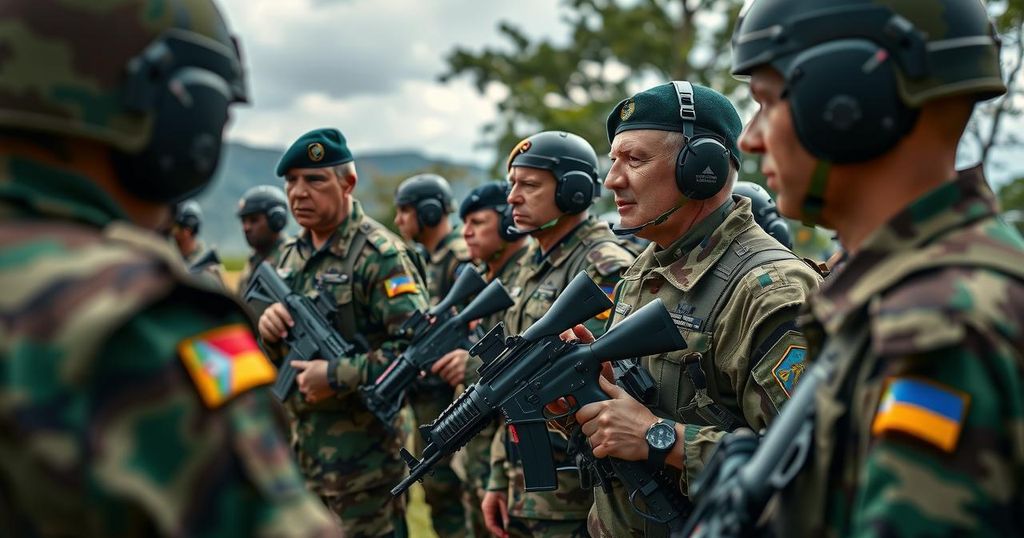Russia has reportedly sent around 200 military instructors to Equatorial Guinea, focusing on elite security training in Malabo and Bata. This move is part of Russia’s broader strategy to expand its influence in Africa, especially among nations dissatisfied with traditional Western alliances. Concerns have been raised about the implications of this military presence for US interests in the region.
Reports indicate that Russia has dispatched approximately 200 military instructors to Equatorial Guinea, primarily to bolster the security of the presidency. These instructors are reportedly engaging in training operations for elite security forces in the capital, Malabo, and the city of Bata. This military assistance follows previous reports that surfaced in August, highlighting Russia’s growing influence in Africa, particularly through the deployment of mercenaries. The influx of Russian personnel may include members of the paramilitary force known as Corps Africa, formerly identified as Wagner, which has been placed under the aegis of the Russian military. Notably, these developments coincide with ongoing efforts by President Teodoro Obiang Nguema Mbasogo to secure military support and resource exploration agreements, particularly in partnership with Russia and Belarus. This trend reflects a broader shift among some African nations seeking alternative alliances amidst dissatisfaction with traditional Western supporters. Equatorial Guinea’s government has faced significant scrutiny regarding human rights violations, including allegations of extrajudicial killings and torture. Recent statements from US-based human rights advocate Tutu Alicante emphasize the geopolitical implications of Russia’s military presence, warning that it undermines US interests in the region. President Obiang has previously expressed gratitude towards Russian President Vladimir Putin for the military aid, signaling a strengthening of bilateral relations.
Equatorial Guinea, under the long-standing leadership of President Teodoro Obiang Nguema Mbasogo, has recently intensified its military ties with Russia amidst increasing dissatisfaction with traditional Western alliances. With a population of 1.7 million, Equatorial Guinea has faced international criticism for its human rights abuses, which has compounded its efforts to seek military collaboration and investment in resource exploration. President Obiang, who has led the nation since 1979, continues to navigate regional politics by fostering relationships with nations perceived as counterbalancing Western influence, such as Russia and China, in order to consolidate his administration’s power amid ongoing global shifts.
The deployment of Russian military instructors to Equatorial Guinea signals a strategic maneuver to enhance the security of the regime while also underscoring Russia’s expanding footprint in Africa. This move aligns with the country’s broader ambitions to gain influence amid discontent with traditional partners, particularly in the context of shifting geopolitical dynamics across the continent. The implications of this military presence could have profound repercussions on regional stability and foreign relations, particularly concerning US interests.
Original Source: www.bbc.com







